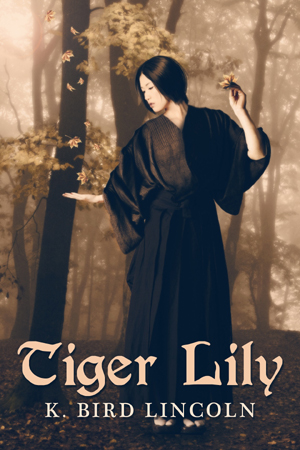
I’ve been researching and outlining my current novel for quite a while, but it was only this past week when I sat down to write the beginning of the book. Before doing that, I decided to try something intended to wake me up to what makes a good novel opening: I read through the beginnings of eight of the best novels I could think of-or more specifically, eight of the novels I was originally most engrossed by and continue to be most impressed by.
I didn’t worry about choosing my “eight favorites of all time,” and I strongly favored mainstream (that is, not romance, SF, Fantasy, mystery thriller, etc.) and adult over speculative and/or young adult (YA) because the novel I’m writing is a mainstream, adult novel. Otherwise I would have included The Lord of the Rings, The Golden Compass, The Amulet of Samarkand, The Hunger Games, Harry Potter and the Sorcerer’s Stone, etc.
By the way, except for Life of Pi (which I can’t recommend because I haven’t read it all the way through), I highly recommend any and all of these novels. To whatever extent your reading preferences are close to mine, I think you’ll love them.
My goal was to look for any specific tactics I would want to use in the opening of my own novel. I believe that beginnings are crucial, even more crucial than endings, because they signal what kind of book it will be and because readers often judge whether or not to read on from the first few pages or chapters. A bad ending may make the reader throw the book across the room, but a bad beginning will prevent the book from entering the room in the first place.
Of course, you can go back and redo your beginning any number of times, but as long as it’s not going to bog you down, why not start with your best effort? With that said, if you think it is likely to bog you down, this approach is probably no good for you. Some of us need more drive while others of us need more thought. I’m in the second camp.
The books I chose may or may not have been ideal for my purposes, since these books tend toward the “literary,” whatever that means when we’re talking about novel that were also commercially successful, and I’m trying to write a novel that offers a huge amount of real-life information in the form of an engrossing story, which is a bit of a different intention.
The results of my casual review were eye-opening for me. Here are the lessons I drew from the process, which may or may not be useful in your writing. I believe they apply in some measure not only to novels, but also to short fiction.
- I do seem to love me some first person POV, which is too bad, considering the book I’m working on, after sober reflection, should be in third person. It surprised me, though, that most of the books I chose as favorites were written in first person.
- All of the books gave a lot of information early on, but they varied enormously in what kind of information they gave and how pertinent it was to the story. Niffeneger gives a clear and understandable picture of a confusing and unusual condition (involuntary time travel) that is at the center of her story, for instance, whereas Martel drops a few vague hints of what his story is about and then starts spouting facts about tree sloths.
- All of these books implied or stated that something significant and terrible was going to happen but (possibly with the exception of Niffeneger’s book) didn’t go into the details of what that thing was for at least a little while. This ranged from the subtle (beginning the chapter by quoting a poem dealing with blood and destruction) to the extremely blunt (“I was fourteen when I was murdered on December 6, 1973.”).
- All used sharp and unusual metaphors and/or similes
- I hadn’t previously imagined this would be a key point, but all made highly opinionated observations and philosophical statements. Of course, this may be partly a product of the predominance of first person stories, but even so, I was struck by how outspoken the narration was.
- Most seemed to labor energetically early on (though not necessarily immediately) to explain anything that might be confusing or unusual about the story, but to do so in a way that seemed like a natural part of a story rather than stop-and-lecture. For example, Niffeneger demonstrates the time travel situation, Adams reveals that we’ll be reading a story about talking rabbits, and Stockett clearly depicts the structure of relationships in a household where a white woman hires a black woman to take care of her child.
- Something bad is happening or has already happened to the main character pretty much right away; we have a reason to sympathize and take that character’s side. This is different than the “significant and terrible” thing. It’s the difference between Harry being locked in a cupboard under the stairs (which wins our sympathy) and having to face Voldemort (which is the key conflict of the book).
- The first person narratives very often felt like being taken wholly into the person’s confidence right away: Holden Caulfield and Aibileen and Delores and all the rest feel like they’re telling all of their secret thoughts to the reader, implying a relationship of utter trust and confidence.
- All bring up large and meaningful issues right from the start
- Some of the books started with observations, reflection, and summary rather than diving right into a scene
Here are the raw notes I jotted down about each book as I went, in case you’re interested in the details I noticed.
Barbara Kingsolver, The Poisonwood Bible
· Immediately gives you reasons to both sympathize and be suspicious of the main characters
· Very “literary” in style, and first person, neither of which is well-suited to what I’m trying to do in my own book
· Surprising and gripping imagery
· Situation first, then explanation (not the other way around)
· Strong use of metaphor and vibrant description
· Brings up large issues (Africa, race, entitlement, guilt, privilege) in the first few pages
· Makes ethical/philosophical statements (“Most people have no earthly notion of the price of a snow-white conscience”) and controversial ones
· Strongly foreshadows
· Starts with reflection on everything (philosophy, metaphor, meaning, foreshadowing) and only then gets to the story of things
Audrey Niffeneger, The Time Traveler’s Wife
· Starts with personal reflection and immediate reference to danger and difficulty
· Ideas, philosophy, and generalization at beginning, not an immediate scene
· Startling premise given out in an incomplete way very soon
· Metaphor, simile
· First person again (still not applicable to what I’m doing, though)
· Second character introduced after only a few paragraphs, with vivid images of how time travel feels and specific examples that are half-summarized, half in-scene
· establish relationship immediately, in a meaningful way
· still a lot of reflection and summary in Henry’s part
· Beginning has an especially high proportion of effective poetics, sort of a demonstration of skill. Later in the book the descriptions and comparisons are still vivid, still lots of simile and metaphor, but the rest of the language is more transparent.
· The same is true in The Poisonwood Bible: later the story is still carried by metaphor and simile, but the intent is more narrative and less poetic and philosophical
J.D. Salinger, The Catcher in the Rye
· Starts with character, giving us an immediate and clear idea of who this guy is and how he sees the world. We also get a lot of detail about his life-where he goes to school, what he values, what his parents are like from his point of view (in general terms), his brother, etc. Long first paragraph that kind of runs on. Voice dominates.
· Then fragments of scenes, mostly told in summary, that continue to illuminate what his life is like.
· First person again, of course. That just kills me, all that first person.
· There’s a palpable warmth and feeling of trust: you immediately start feeling like a confidant, that Holden might not be very reliable to most people, but for some reason he’s chosen you as someone with whom he’s going to be absolutely, 100% candid. The same thing at the very beginning of The Poisonwood Bible.
Richard Adams, Watership Down
· Title of the first part is “The Journey,” which foreshadows, and then there’s a quote from a Greek play about death and the stench of blood, so before you read even a word of the actual story, some tension has been created.
· Starts with a traditional kind of “lay of the land” description, with specific plant names and object names, the layout of things, and so on. It paints a pretty fair picture and only gradually focuses our attention on the rabbits. Once it does that, it starts by showing them as we would see them, then implies some personality, then begins to refer to rabbit culture in a way that technically could maybe still be considered realistic if it were based on zoology rather than sociology, and then finally crosses the line into explicit talking rabbit territory.
· He gives a character sketch of each rabbit in kind of a static way, but the tension he has built up for us tides us over durng this uneventful (though pertinent) material.
· Story picks up with a scene fairly soon, with several more reminders of something dire to come (probably more necessary because the scene is only rabbits out nibbling, though there is conflict early on with the pushy Owsla members). There is even foreshadowing in the footnotes.
· He establishes the “rules” of his world very early on and imparts a surprising amount of rabbit cultural information quickly. The omniscient voice helps with this, as do the footnotes. The style is traditional or even antiquated by modern American standards, but not far out of expectations and very suitable for the book’s original time and place.
Yann Martel, Life of Pi
Disclaimer: I haven’t read this entire book: I picked it based on reputation and the movie.
· Begins with broad statements that suggest great troubles but say nothing about them, and instead focus on the narrator’s academic studies. Quickly focuses on sloths, with interesting comments
Some broad and philosophical statements that suggest a wide scope of meaning for the story
· Goes on for quite a while about the habits of sloths, then meanders onto religion and science in an apparently undirected way-still not revealing why there would be any great woe in store
· Gets even more poetic and philosophical as it proceeds
· Descriptions are vivid, surprising, and opinionated, and imply larger parts of the story that are not stated outright, e.g. “… but I love Canada. It is a great country much too cold for good sense, inhabited by commpassionate, intelligent people with bad hairdos.”
Continues with hints and hints … who is Richard Parker? Why were you in a hospital in Mexico? What brought you to Canada? What story did the other patients in the hospital come over to hear from you? etc.
Chapter 2 is a single paragraph, an outward character sketch of the narrator.
· Chapter 3 launches into the narrator’s personal history. Clearly we will have to wait a long time before finding out about Richard Parker and what the story was that the patients came to hear.
Wally Lamb, She’s Come Undone
· Starts with a memory full of personal details and clearly marked as having unreliable parts. Fills in family details, personality, and how she was raised and treated. One scene, then another. First person again.
· By the end of the second scene, a broad reference to something very bad coming. Earlier on, hints that signing on with Mrs. Masicotte was a bad decision that will cost the family. Lots of period detail.
Kathryn Stockett, The Help
· Rotating first person POV again. Yikes, all this 1P!
· Establishes voice and role immediately, and the delivery clarifies that racial issues will be central fromm the first paragraph without anything about that being explicit.
· By the second paragraph, a situation and a scene are forming, with the white lady employer unable and possibly unwilling to take care of her child
· Narrator immediately focuses on the child’s needs, even though a screaming child is hard to care about, and earns our trust and admiration-and then she is very quickly effective in her role and we come to attribute competence and intelligence to her as well
· Metaphor, simile, and voice. “Her legs is so spindly, she look like she done growed em last week.”
· Some daring statements that begin sketching out the big issues the story will tackle. “I reckon that’s the risk you run, letting somebody else raise you chilluns.”
· Then begins filling in a little of her personal tragedy (her dead son), laying out the details of his death with all the clarity and candor of everything else she’s said.
· We feel here too that we are getting the full, frank story in a way that none of the other characters in the book will get it.
Alice Sebold, The Lovely Bones
· A one-paragraph preamble that’s both sweet and ominous. We don’t know it, but it foreshadows the whole situation of the book.
· Once again first person and voice and the extreme frankness.
· She dispassionately describes her murder in the second sentence.
· A few paragraphs later, makes the first reference to “my heaven”
· Spends some time sketching out a character who will have zero role in the novel but does have emotional impact.
· Occasional sharp and well-observed metaphors and similes
· Very soon launches into the scene in which she is killed. Wastes no time.
· However, interrupts it with personal reflections and thoughts about her family-as is appropos, considering it’s a book about Susie’s relationship with her family.
· Still in the interruption of that murder scene, a fragment of a scene in heaven, observing a scene on earth in which the murderer talks to Susie’s mother.
· Family observations and fragments of scenes in Susie’s heaven continue to be interspersed with the murder scene, as well as reflections on what she did and should have done.
Photo by Let Ideas Compete
Like this:
Like Loading...


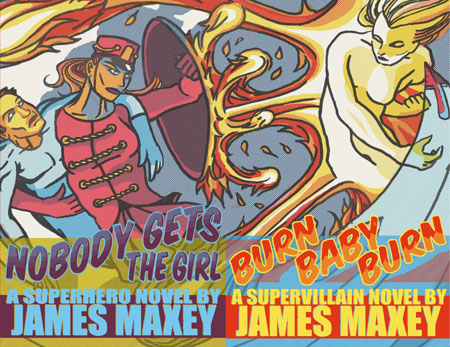



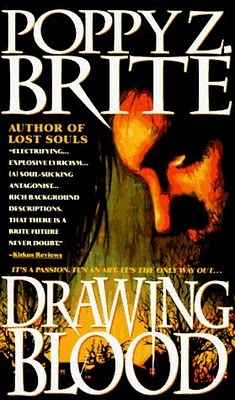 LUC: In our first round of questions, you mentioned Poppy Z. Brite’s book Drawing Blood, saying “Besides all the vampire sex and killing, what I took from that was that gay people are just people with relationships and problems and to do lists and lives to run and stories,” and you went on to describe how that has affected how you see and understand many kinds of people in the world. Are you consciously trying to create “aha” moments like this for your own readers? Are your goals for inclusivity in your writing explicit and specific?
LUC: In our first round of questions, you mentioned Poppy Z. Brite’s book Drawing Blood, saying “Besides all the vampire sex and killing, what I took from that was that gay people are just people with relationships and problems and to do lists and lives to run and stories,” and you went on to describe how that has affected how you see and understand many kinds of people in the world. Are you consciously trying to create “aha” moments like this for your own readers? Are your goals for inclusivity in your writing explicit and specific?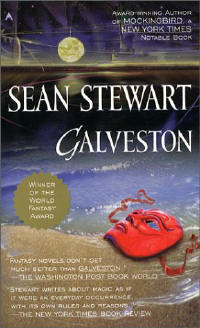 LEAH: Actually, this might appear to come a bit out of left field? But: Anything by Sean Stewart. Specifically Galveston, or Nobody’s Son.
LEAH: Actually, this might appear to come a bit out of left field? But: Anything by Sean Stewart. Specifically Galveston, or Nobody’s Son.

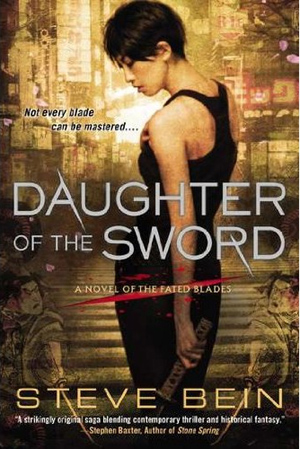 LUC: What approaches to inclusion and exclusion do you expect to take in your fiction going forward?
LUC: What approaches to inclusion and exclusion do you expect to take in your fiction going forward?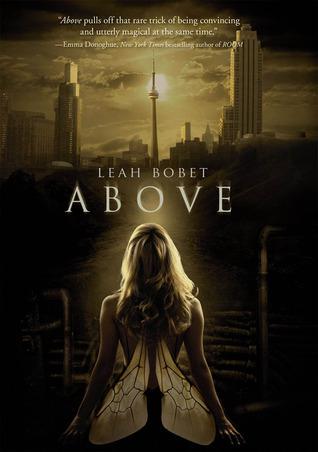
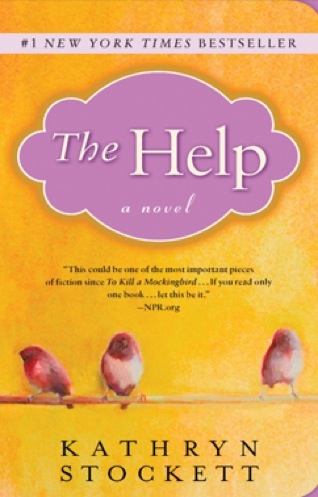 Kathryn Stockett, author of The Help, has become my new favorite example of the power of persistence. She certainly hasn’t made me forget about Jo Rowling, whose first Harry Potter book was rejected by 12 publishers before finding a home at Bloomsbury, but Rowling got representation from the second agent she tried, while Stockett reportedly got at least 45 rejections for The Help before even finding an agent (see
Kathryn Stockett, author of The Help, has become my new favorite example of the power of persistence. She certainly hasn’t made me forget about Jo Rowling, whose first Harry Potter book was rejected by 12 publishers before finding a home at Bloomsbury, but Rowling got representation from the second agent she tried, while Stockett reportedly got at least 45 rejections for The Help before even finding an agent (see 